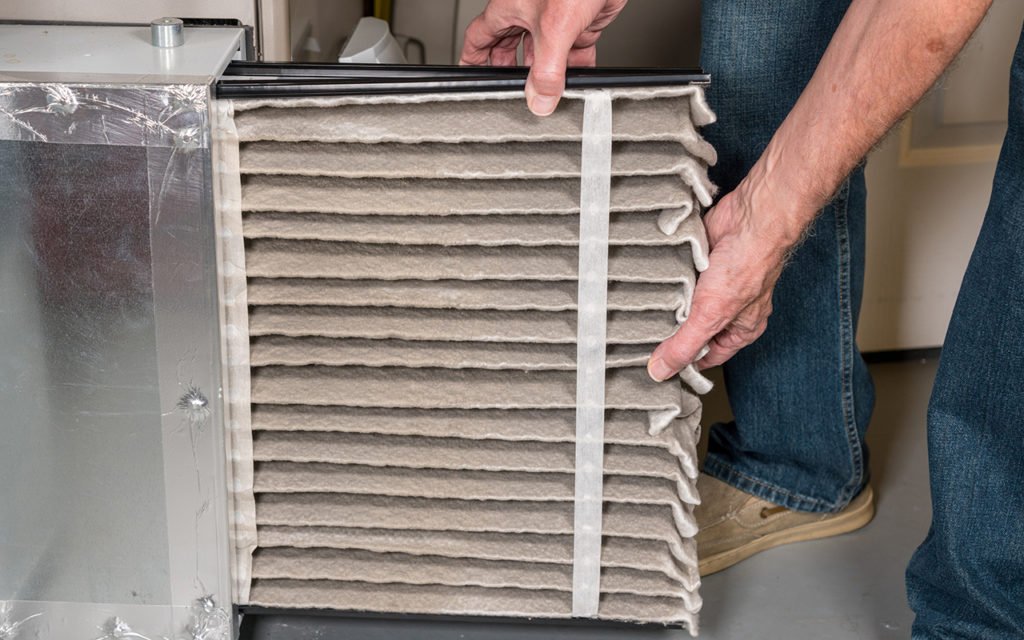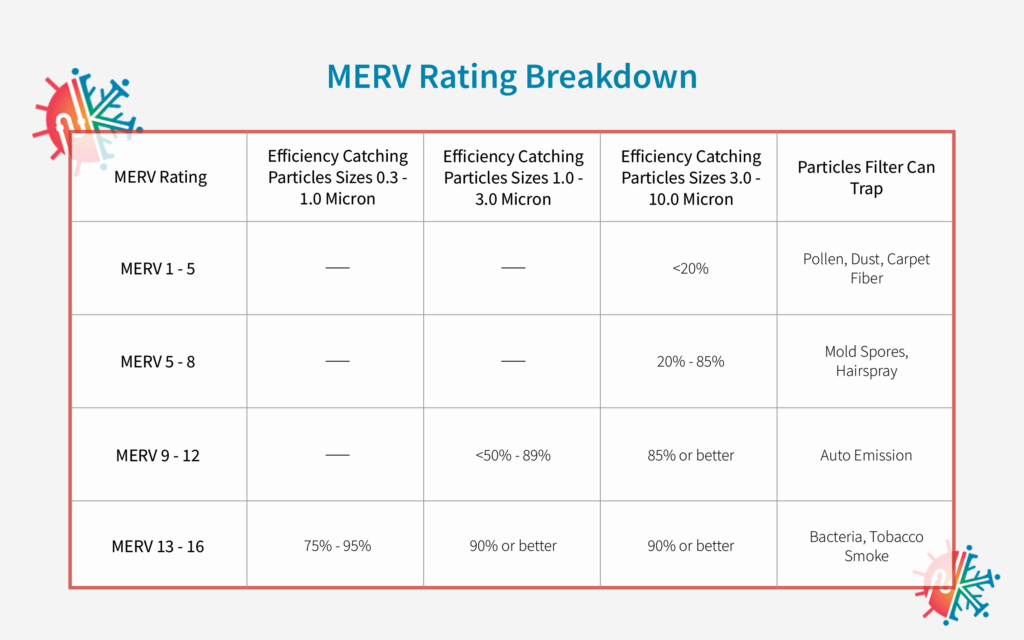
If you’re shopping around for a new HVAC air filter, you might notice something called a MERV rating listed on the packaging. MERV stands for minimum efficiency reporting value. Although many consumers aren’t aware of what this rating is, it’s actually a vital figure to take into account so you can assure your HVAC system is running as smoothly as possible. Let’s take a look at what a MERV air filter rating is and why you should pay attention to it.
Our homes are filled with tiny microscopic particles that can be harmful if left to accumulate for too long. Dust, mold spores, pollen, bacteria, and other irritants can make their way into your home and cause respiratory issues in sensitive populations. A MERV rating is used to measure how efficiently a filter can trap these small particles as air circulates through your system.
The MERV rating system measures efficiency on a scale of 1 - 20. This number represents a filter’s lowest possible performance capabilities. The less effective a filter is at trapping airborne particles, the lower the MERV rating it will score. The highest efficiency filters will fall on the opposite end of the MERV rating scale.
Most homeowners will need a filter that falls between MERV 7 and MERV 12. You might be tempted to select a filter higher than this so you can have the cleanest air possible. But residential homes don’t usually need to filter out airborne contaminants at levels past MERV 12. In fact, going above this threshold can actually harm your HVAC system.
Air filters create a phenomenon called pressure drop. The tighter woven a filter is, the harder it will be for air to pass through. This creates air resistance that your HVAC system will need to compensate for. Higher MERV ratings will create more of a pressure drop and make it harder for your system to circulate air.
MERV ratings between 7 and 12 can filter out particles while also not creating too drastic of a pressure drop. As long as you’re changing out your filters regularly, there should be no issue. But once you go above MERV 12, you could overwork your HVAC system.
Stick with MERV 7 to MERV 12 to assure your system can handle the pressure drop. Most homes can get away with using a MERV 7 - 10 filter. But if you have pets or have a household member with respiratory sensitivity, you might benefit from choosing a MERV 11 or MERV 12 filter.
Air filters above MERV 12 are typically reserved for sterile environments. Hospitals, lab settings, and manufacturing facilities are all examples of places that might need the enhanced air sanitation filters above MERV 12 can provide. Unlike residential HVAC systems, these buildings have infrastructure that can handle the significant pressure drop that can occur when high MERV rating filters are used.

Filters are a vital part of the overall functionality of your HVAC. It might seem like a minor detail but they actually play a big role in keeping your system going and assuring the air you breathe is safe. If you let your filter get too dirty, it will create an even thicker wall for air to pass through as it circulates through your home. This will create a higher pressure drop and place undue stress on your HVAC system.
Be sure to change your air filter at least every 6 months if not sooner. This is a key piece of HVAC upkeep that can save you a lot of trouble down the road. Regular maintenance is a great way to prolong your system’s life. Checking in to see if all your components are in good shape can help you catch issues early and save you money on costly replacements.
If you have problems remembering when to install your air filter, sign up for a subscription! Usually, air filter subscriptions will deliver right to your home on the day you need to switch it out. They are essentially the same price as what you pay in-store and you can have the ability to choose a custom size through certain subscriptions. Second Nature and FilterTime are the top air filter subscription providers in the US.
Air filters can be located in a few different locations. Generally, they will be within the return air ducts or blower compartment. But these components are not placed constantly across the board. Also, keep in mind that some homes have one filter while others might have a filter for each room. You’ll need to do some investigating to locate where your HVAC filters are.
Here are a few locations to check:
At WM Buffington, we offer a comprehensive maintenance plan program to help you keep your system running in tip-top shape. Members enjoy an annual system inspection & cleaning provided by one of our expert technicians. Get in touch with us to learn more about our HVAC maintenance program!